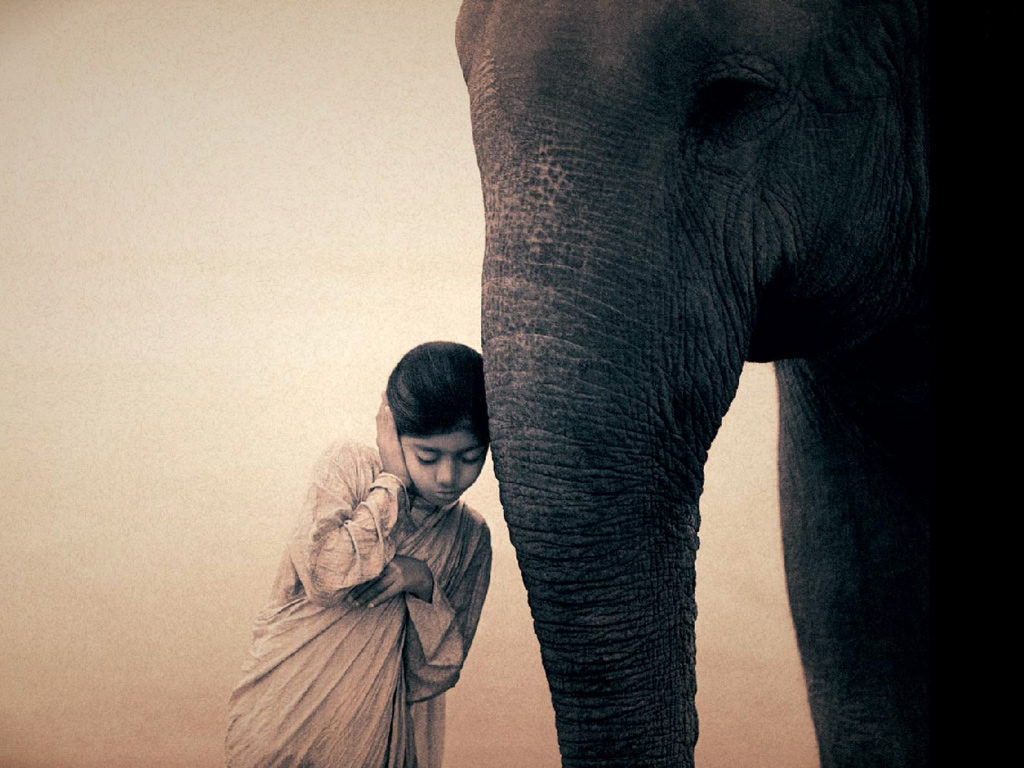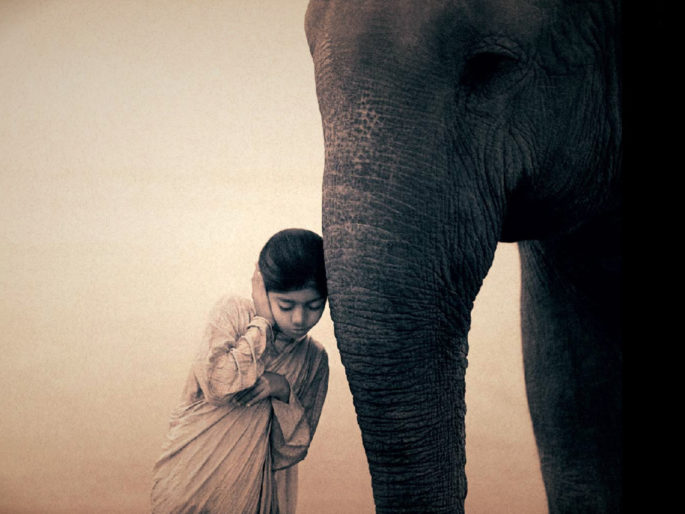Causalities 1
“The world belongs to those who do not feel. The essential condition for being a practical man is the lack of sensitivity. The main quality in the practice of life is that quality that leads to action, that is, the will. Now there are two things that hinder action – sensibility and analytical thinking, which is nothing more than thought with sensitivity. All action is by its nature the projection of the personality on the external world, and since the external world is in great and main part composed by human beings, it follows that this projection of the personality is essentially the cross in the other path, to hinder, to hurt and to crush the others, according to our way of acting.
In order to act, therefore, it is necessary that we do not easily appear to other people’s personalities, their pains and joys. Those who sympathize stop. The man of action regards the external world as composed exclusively of inert matter – or inert in itself, like a stone upon which it passes or moves away from the path; or inert as a human being who, because he could not resist it, whether was it a man or a stone, for as to the stone, or he moved away or passed over.
The ultimate example of the practical man, because he combines the extreme concentration of action with its extreme importance, is that of the strategist. All life is war, and the battle is therefore the synthesis of life. Now the strategist is a man who plays with lives like the chess player with game pieces.What would be of the strategist if he thought that each move of his game puts night in a thousand homes and hurt in three thousand hearts? What would the world be like if we were human? If the man really felt, there would be no civilization. Art serves as an escape from the sensibility that the action had to forget. Art is the Cinderella, who stayed at home because it had to be.
Every man of action is essentially lively and optimistic because whoever does not feel is happy. A man of action is known for never being in a bad mood. Whoever works, although in a bad mood, is an action subsidiary; may be in life, in the great generality of life, a bookkeeper, as I am in her peculiarity. What he can not be is a ruler of things or of men. To regency belongs the insensibility. It rules who is cheerful because to be sad you have to feel.
The boss Vasques today made a business in which he ruined a sick individual and his family. While doing the business he completely forgot that this individual existed, except as a commercial counterpart. Once the business was done, sensibility came to him. Only then, of course, if it came earlier, the business would never be done. “I feel sorry for him”, he told me. “He will be in misery”. Then, lighting his cigar, he added: “In any case, if he needs anything from me” – to be understood as any alms – “I don’t forget that I owe him a good business and a few dozen pounds.” “
The boss Vasques is not a thug: he is a man of action. Whoever lost the throw in this game, in fact, because the boss Vasques is a generous man, to count on his alms in the future.
Like boss Vasques, are all men of action – industrial and commercial leaders, politicians, men of war, religious and social idealists, great poets and great artists, beautiful women, children who do what they want. Bosses those who does not feel. Whoever thinks only what he needs to win wins. The rest, which is the vague general humanity, amorphous, sensitive, imaginative and fragile, is nothing but the backdrop against which these figures of scene stand out until the puppet play ends, the flat bottom of squares on which the chess pieces are raised until the Great Player keeps them, deluding himself with a double personality, plays, entertaining himself, always against himself.
Bernardo Soares (Fernando Pessoa), In The Book of Disquiet
[OP Translation]
Amazements 2

…
“Only snow
knows the gestures
with which the miracles are woven”
Luís Falcão, In Uma Exigência de Infinito
2020
For 2020
(and always):
Even more listening…
from within and from the real.
With Humility, Purity, Integrity.
Cooperation.
May our struggles to be do not overlap with what others are, or they might become.
May the fear and our longing for personal success, generated by the (still) primary needs of survival and validation, do not make us distant from one another (from ourselves) and overshadow our Humanity.
That we Recognize, Honor and Celebrate our Gifts,
mine and those of others.
Open, free of prejudice.
Loyal, in every action.
From the intentions.
Above all these vows and hope.
For all of us.
*

even more listening…
Without why
“Without why
The rose is without why; flowers because it flowers,
Do not take care of itself, does not ask if we see her.”
Angelus Silesius
[OP translation from the Portuguese translation by José Augusto Mourão]
Amazements 1
Blessed is the future where we will be amazed at not knowing what to think
“I believe that in the coming decades, and in those that will follow, and even in those that will come, by many millennia, mankind will know what to think. I’m not part of the historical pessimists’ exclusive club; discourses about decadence bore me; just as, I confess, the optimism bewilder me. The threads of history are not descending or ascending: they are only threads; those who are find in the life of every time and every generation. And the most important thing is that the threads resist in infinite ways, both in the catastrophes and in the successes (and God knows how hard it is to be reborn after one and other!). That is why I believe that the humanity of the future will surely know what to think. It is not difficult to imagine that knowledges, even in new contexts, will develop and in many cases will be a complete surprise to us, more not be because we had them under the nose for so long and did not used them. Perhaps its time had not yet come. Or maybe it did and we had it clamorously failed, which we must admit. It is not difficult to conjecture that will emerge new grammars to understand the world and intervene in it, and that some will confirm us in what we have been, while others will oppose each other, radically reinventing methods and purposes.
But deep down, what does it matter? It is not enough to cling to our points of arrival, as if they were the only legitimate ones, when we must begin before everything with the blessing of the future that declares us overcome. Blessed is the future that will laugh at us because we confuse everything: a change with the journey, an approximation with the encounter, the possession of things with its use, the accumulation of goods with its healthy usufruct. Blessed is the future that will criticize us for having produced so much and distributed so badly, for having walked on the Moon and then resisting so much, but so much, coming to the knowledge of our own heart. Blessed is the future in which technology will cease to be a fetish in the hands of the market, as it already is to a large extent, and will become a better instrument for everyone’s life, as happened, for example, with the plow or wheel. Blessed is the future that will inspire us with more essential life styles, more attentive to other human beings, but also to all the other creatures who share with us this mysterious adventure, and of which we know so little. The future will know how to find the space and expression of its thinking.
There is one thing that surpasses every other desire: that the humanity that will come to inhabit that who is for us the future will often realize that we do not know what to think. Let it be baffled by the inexplicable splendor of every dawn; that it remain speechless before the sea, as those who saw him for the first time; who feels irresistibly attracted by the variations of the colors, volumes and odors of the daytime and night landscape; that feels crossed by a thrill to the first contact with the water; that maintains the capacity to be amazed at the way the wind takes away our happy voices; that looks the same way helplessly at the rain, the flooded fields in silence, the smallest and most vast things, the traffic of the clouds, the spread of the poppies that in the fields resemble words they dream. I long for the humanity of the future to relish the embarrassment of what remains unfinished, not by insufficiency but by excess, and do not hasten to catalog, describe or imprison. That its way of understanding be another way to keep (or even amplify) the amazement.”
José Tolentino Mendonça, In Avvenire
[OP translation from the Portuguese translation by Rui Jorge Martins in http://www.snpcultura.org]
A little flickering light
A little flickering light not in the shining distance at the end of the road here in the middle of us and the crowd around une toute petite lumière apenas uma pequenina luz una piccola ... in all the languages of the world a little flickering light shining uncertain but shining here in the middle of us between the hot breath of the crowd the wind of the hills and the breeze of the seas and the sour breath of those who do not see it they only guess it and they angrily blow. A small light wavering exact flickering firm which does not light just shines. They called it voice they heard it and it is mute. Mute as accuracy as firmness as justice Shining indefectible. Silent does not crackle does not consume does not cost money. It is not it that costs money. Does not also heats those who from cold come together. It also does not illuminate the faces that curve. Just shines twinkles waves. indefectible golden near. All is uncertain or false or violent: it shines. All is terror vanity stubborness pride: it shines. All is thought reality sensation knowledge: it shines. All is darkness or clarity against the same darkness: it shines. Ever since or never ever forever or not: shines. A little flickering and silent light As accuracy as firmness as justice. Just as them. But it shines. Not in the distance. On here in the midst of us. Shines. Jorge de Sena [OP translation]




